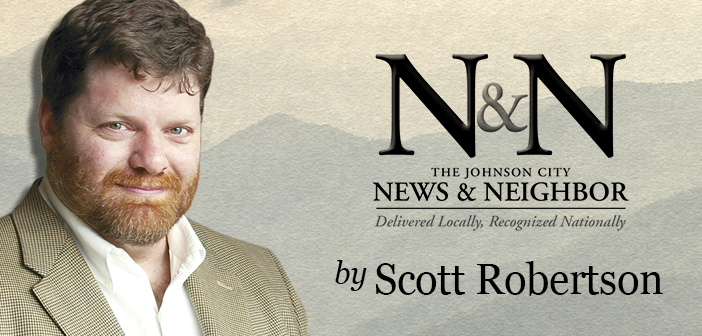Now that the agenda for the September 10 Regional Economic Forum at ETSU has been confirmed, August appears it will be a busy month. Both Joe Grandy, the mayor of Washington County, Tenn., and Richard Venable, the mayor of Sullivan County, have indicated the Mayors’ Blue-Ribbon Task Force on Regionalism will have at least a preliminary report on what areas their workgroups have found where intercounty collaboration makes sense. Talks continue between the boards of NETWORKS Sullivan County and the Northeast Tennessee Regional Economic Partnership regarding collaboration in economic development. And the accountable care community continues to grow as not-for-profit organizations across Northeast Tennessee and Southwest Virginia come together in a unified effort to stop reinventing each others’ wheels.
We may even have a report this month from the North Star branding initiative, a study funded by various local governments regarding the creation of a brand for the region’s outside marketing. Johnson City’s city manager has already said the North Star study placed Appalachian Highlands No.1 among survey responders in Charlotte, Nashville and Atlanta, with Tri-Cities second. Personally, I have misgivings about why the survey wasn’t sent to site selection consultants in places like Boston, Chicago and Dallas. Those are the people to whom the branding effort is targeted. Also, they’re far from Appalachia, so their prejudices against the Appalachian Highlands name may or may not have been more pronounced. We’ll never know. But, we’re picking at nits here. As I’ve written before, what we do with the brand is far more important than what words we choose to use. Actions speak louder.
As for the forum itself, here’s what we know. We’ll hear from ETSU’s Jon Smith on the state of the state of the economy in the region. I’ve already had two people who have had reservations about regionalism in the past tell me, “He’s just going to tell us how bad things are to scare us into supporting regionalism.” Hmm. Well, we already know our economy has been flat while the rest of the nation has had economic growth for a decade, creating a net economic decline here. We already know the population is in decline. We already know young people are fleeing the region while older people are just getting older. I don’t think you need to be scared to see the truth, but the truth is kind of scary.
We’ll hear from Mark Fuller of ROSC Global, the consultant Eastman hired two years ago to study the region and its economy. I have no idea what he will say. He and I spoke, just after he came to the Tri-Cities, as he was making his first round of interviews in the region. I know he spoke with several business community leaders and elected officials. When we met, he showed surprising candor and already some level of insight based on his previous discussions; I hope that continues with his appearance in September. The forum will also feature a panel discussion with business and not-for-profit leaders from Northeast Tennessee and Southwest Virginia.
The folks who believe regionalism is trying to kill all competition in the region don’t seem to respect the difference between healthy competition and unproductive competition.
The biggest thing I’d like to see happen September 10 is for folks to realize we already are a region, whether or not we choose to brand ourselves as one. Regardless of what we call ourselves, we are a single marketplace. In this space in 1988, the editors of The Business Journal pointed out the fact that dollars and cents do not regard county or state lines. The U.S. Census Bureau has released data showing driving habits between Washington County, Tenn., and Washington County, Va. More of us live in one city and work in another than ever before. More to the point, there are more of us living in one city and working in another than there are living and working in the same city.
Does that mean regionalism goes against all competition between cities and towns in the region? No. There will always be healthy competition for the new restaurant, the new retail center, the new housing development. That’s good. The folks who believe regionalism is trying to kill all competition in the region don’t seem to respect the difference between healthy competition and unproductive competition (in which individual cities and counties, while trying to bring in outside jobs and investment, undercut each other in ways that make the entire region appear to not have its act together, thus chasing the development entirely out of the region – everybody here loses).
The healthy competition inside the region won’t determine whether any of our communities sinks or swims in the long run, though. What matters is the competition between our region and others in the state, in the Southeast, in America and in the world market. We have the potential – by addressing our weaknesses – to grow a product that will entice new jobs and investment to come here.
If we don’t? Well, Jerry Caldwell, general manager of Bristol Motor Speedway summed it up well when someone told him they didn’t think what happened to the economy of a community on one side of the region mattered very much to a community on the other side. “That’s like standing on the bow of a sinking ship and saying, ‘well, it’s only the stern that’s going under,’” Caldwell said.
My hope for the Sept. 10 forum is that it helps the last few anti-regional holdouts realize that all they’re fighting with each other about is who gets the nicer deck chairs on a ship they’ve been helping to sink.




